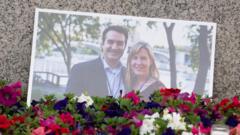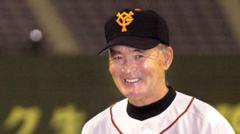On March 25, 2025, a Tokyo court made the significant decision to disband the Japanese branch of the Unification Church, a move attributed to the church’s controversial practices brought to light following the assassination of Shinzo Abe. The former prime minister was shot in July 2022 by an individual with a personal vendetta against the church, which drove a governmental inquiry into the organization’s methods of manipulating its members.
Japanese Court Orders Disbandment of Unification Church Following Abe Assassination

Japanese Court Orders Disbandment of Unification Church Following Abe Assassination
In a landmark ruling, a Tokyo court has dissolved the Unification Church due to its financial exploitation of followers, triggered by the fallout from former Prime Minister Shinzo Abe's assassination.
The investigation revealed allegations that the church coerced its members into extensive monetary contributions, which resulted in severe financial distress for many. Specifically, the Japanese education ministry, which governs religious institutions, had gathered testimonies from approximately 1,550 former members, tabulating damages that amounted to 20.4 billion yen (around $140 million).
Following these distressing findings, the court granted the government’s request to revoke the church's legal status, stating it had breached laws related to religious activities. Founded in South Korea by Rev. Sun Myung Moon, who passed away in 2012, the Unification Church is known globally for its mass weddings and has faced scrutiny in various countries.
The assassination of Abe, perceived by the suspect as an ally of the church, has cast a shadow on the organization, prompting public outcry and scrutiny of its influence in politics. The individual arrested for the shooting, Tetsuya Yamagami, has admitted to the crime and is currently awaiting trial. The court's decision to disband the Unification Church marks a pivotal moment in Japan’s ongoing struggle with blind faith and financial manipulation within religious sects.
Following these distressing findings, the court granted the government’s request to revoke the church's legal status, stating it had breached laws related to religious activities. Founded in South Korea by Rev. Sun Myung Moon, who passed away in 2012, the Unification Church is known globally for its mass weddings and has faced scrutiny in various countries.
The assassination of Abe, perceived by the suspect as an ally of the church, has cast a shadow on the organization, prompting public outcry and scrutiny of its influence in politics. The individual arrested for the shooting, Tetsuya Yamagami, has admitted to the crime and is currently awaiting trial. The court's decision to disband the Unification Church marks a pivotal moment in Japan’s ongoing struggle with blind faith and financial manipulation within religious sects.






















